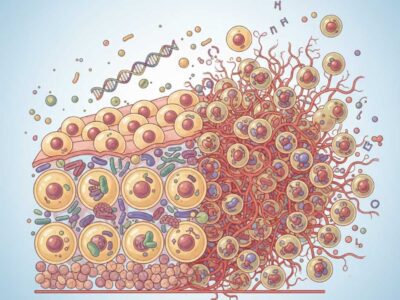Depression is a complicated mental health disorder that millions of people suffer from and that calls for individualised treatment plans for successful control. Although drugs can help with symptoms, therapy interventions target the underlying causes and offer long-term coping techniques. Talking therapy has proven rather successful among the several possibilities since it provides a safe environment to investigate emotions and foster better cognitive patterns. Eight evidence-based approaches for depression are discussed in this guide, with their particular advantages and applicability for various people. Knowing these choices from cognitive theories to creative therapies will enable you or your loved ones to make wise decisions regarding mental health.
Cognitive Behavioural Therapy (CBT)
Focusing on spotting and altering negative thinking patterns, CBT is among the most often suggested treatments for depression. By opposing erroneous ideas, patients can reframe negative thoughts feeding their low mood. By offering workable strategies to change undesirable habits, therapists help to disrupt cycles of avoidance or withdrawal. Usually given in 12 to 20 sessions, CBT prepares people with lifelong coping techniques. Studies indicate that mild to moderate depression responds especially well to this treatment; its advantages often last beyond the course of therapy. CBT’s organised approach makes it appropriate for people who want therapy with defined objectives and observable development.
Interpersonal Therapy (IPT)
IPT focuses on how social roles and interactions affect depressive symptoms. Typically lasting 12 to 16 weeks, this time-limited treatment aims at resolving interpersonal issues, life changes, or grief that could set off depression. Patients develop their support systems and communication skills. IPT is particularly useful for depression tied to particular occurrences such as job loss, divorce, or bereavement. Improvement of the dynamics of relationships helps people to lower their isolation and raise their self-esteem. Its emphasis on present relationships rather than childhood events makes the IPT approachable for people just starting therapy. Research indicates that for certain types of depression, IPT can be as effective as pharmacological treatment.
Behavioral Activation
Behavioural activation, a fundamental aspect of CBT, directly addresses the inertia often associated with depression. Breaking the cycle of withdrawal and low mood, therapists assist patients in progressively reintroducing rewarding activities they have stopped from daily life. By arranging positive events and limiting avoidance, people restore their motivation and enjoyment in daily life. For severe depression, when cognitive activity appears too difficult at first, this pragmatic approach is quite effective. Research reveals that for certain patients, only behavioural activation will be as effective as complete CBT. The emphasis on specific behavioural modifications makes it available even for people battling concentration or complicated thought processes typical of depression.
Mindfulness-Based Cognitive Therapy ( MBCT)
To stop depressive relapse, MBCT mixes cognitive therapy with mindfulness meditation methods. Participants reduce rumination by learning to watch unfavourable ideas without getting weighed down by them. Originally meant for recurrent depression, MBCT is now applied to acute situations as well. Daily meditation, through the development of present-moment awareness, is part of the eight-week programme. Studies reveal that for people with three or more depressive episodes, MBCT halves relapse rates. It is especially advantageous for those who see early symptoms of persistent melancholy. The mindfulness techniques honed offer lifelong emotional control tools outside of the therapeutic setting.
Dialectical behaviour therapy (DBT)
Originally designed for borderline personality disorder, dialectical behaviour therapy (DBT) has shown efficacy for treatment-resistant depression. It teaches emotional regulation and distress tolerance techniques by balancing acceptance with change approaches. While individual therapy uses these abilities to address personal difficulties, the group skills training aspect fosters social support. DBT, often associated with extreme depression, helps to lower self-harming habits and suicidal thoughts. Between-session coaching and the organised cards offer ongoing assistance. Research reveals that DBT boosts functioning even in situations when depressive symptoms continue. Therefore, it is useful for chronic cases. For those undergoing extreme emotional suffering, the pragmatic crisis survival techniques are particularly helpful.
Couples or Family Therapy
Systemic methods can be revolutionary when depression happens in a relational setting. These treatments help to explain how problems in partnerships or family dynamics keep depressive symptoms going. Improving communication and changing relationship patterns help the whole system to be more supportive. When youngsters or teenagers suffer from depression, family therapy is especially suggested. Couples therapy helps when relationship distress contributes to or results from depression. Research shows that involving partners in treatment increases results and lowers relapse. These strategies understand that within a social network, which can either aggravate or lessen symptoms, depression does not happen in isolation.
Conclusion
Selecting the best depression treatment, magandang therapy, depends on individual needs, symptom severity, and personal preferences. Although talking therapy forms the basis of most techniques, the variety of therapies guarantees choices for several contexts and temperaments. Data indicates that the best results are often obtained from combined therapies, such as in acute situations from CBT combined with medicine or in maintenance from MBCT following IPT. The most crucial element is discovering a qualified therapist you trust and a technique that speaks to you. Therapy can offer great relief from sadness and tools for long-term mental wellness with expert direction and a dedication to the process.

















